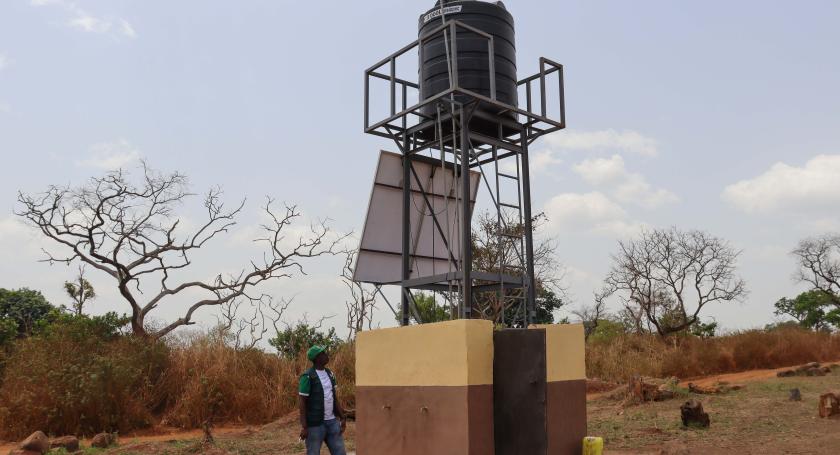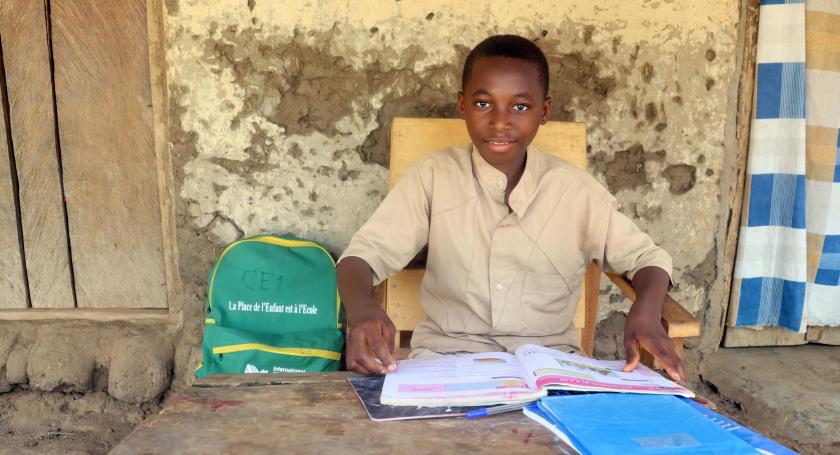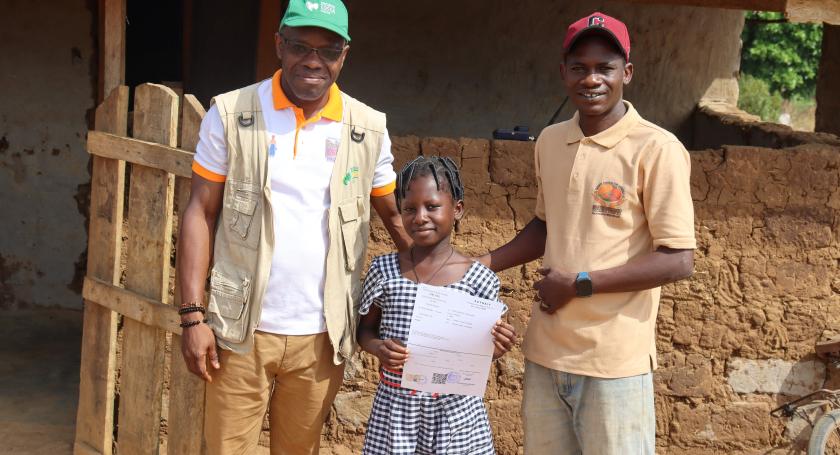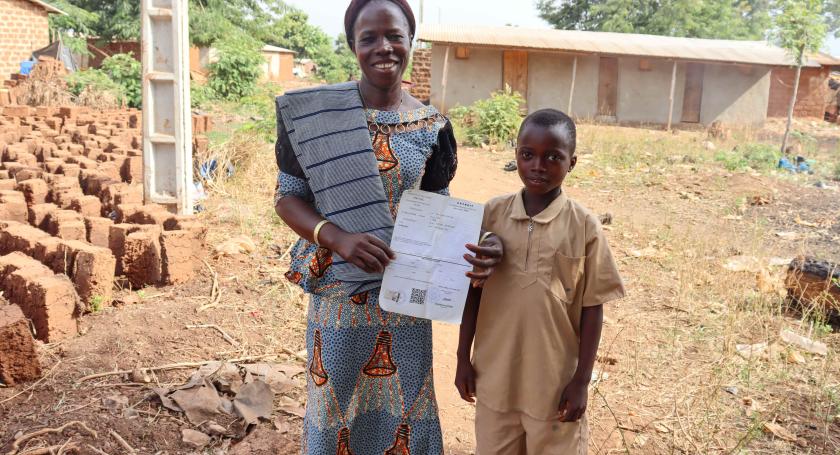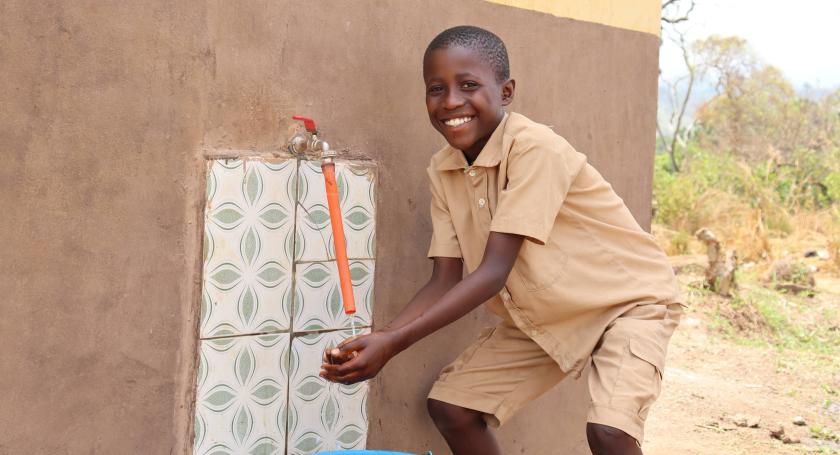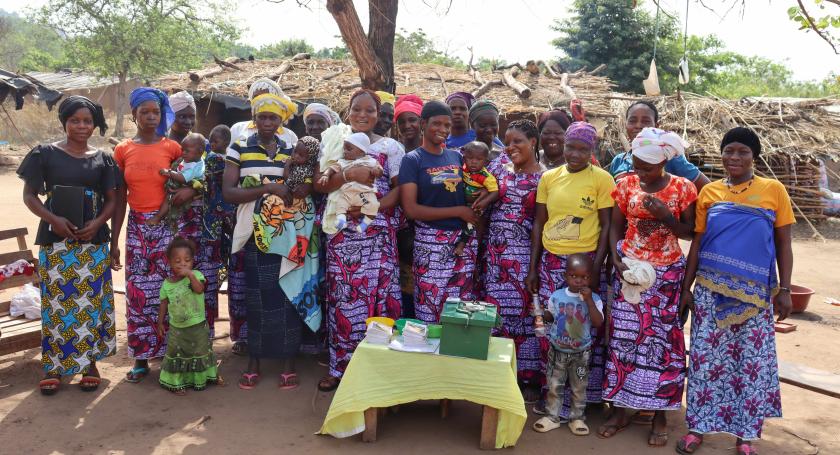As part of community development actions implemented in Touoba and Yakéalé, two cocoa-communities located in Man (Cote d’Ivoire), Twinings Ovaltine has helped children receive birth certificates and school kits.
Mireille Déli Boh, a mother living in Touoba sits in her courtyard next to her 11-year-old son, Anicet, who is a student in class CE2. She holds a birth certificate in her hand, which officially recognizes her son’s identity.
Sitting in her chair, Dame Boh looks back on the reasons that prevented her from obtaining her son's birth certificate earlier. " When he was born, his father [passed away]. I applied to register him at the sub-prefecture in Gouiné, but the journey between the village and Gouiné is expensive, and I had to give up. It hurt me when my son told me that he wouldn’t be able to continue attending school because he didn't have the necessary documents,"she said. Indeed, a birth certificate is one of the administrative documents required to register a child in school and for a child to sit exams. The financial support of Twinings Ovaltine has enabled this valuable document to be granted to numerous children in the public primary schools of Touoba and Yakéalé.
The reasons why parents don’t register their children are diverse.
As the Yakéalé Public Primary School Director, Prosper Yao Yao, pointed out: "Some parents do not have a birth certificate themselves, some children may have lost their parents or one of their parents," in addition, the lack of financial means is an obstacle for some parents.
This was the case for Augustin Ouédraogo, a cocoa farmer and father of 7, including 10-year-old Viviane who is in class CM1: "I didn't have the means to get her birth certificate. With [Twinings Ovaltine and ICI’s] help, she now has her birth certificate and I'm happy. I know that not having a birth certificate creates obstacles for a child, they won’t be able to go to school or travel. That's why I’m committed to requesting her sister’s certificate myself at the Gouiné sub-prefecture"he told us.
In addition to the birth certificates, other children in these communities received school kits at the beginning of the school year. These kits consist of a school bag, notebooks, pens, a geometry set, and schoolbooks.
The children were delighted to receive them: "When I received the kit, I was very happy because it meant less expenses for my parents. Now, I must work hard to make my parents proud of me, I have to perform well in my end-of-year exam," said 12-year-old Sophie Dan, a cocoa farmer’s daughter in class CM2.
Sophie’s father, Achille Dan, expressed his relief once they received the school kit: "Receiving the kit meant less expenses for us parents. With the money saved, I was able to buy her a second school uniform," he said. This is also the case for Josué Farama, the father of Jean Roger, an 11-year-old CP2 student at primary school in Yakéalé: "I was in Danané when he received the [school kit]. When I came back from my trip, he informed me of this. I was happy because we didn't expect it, it saved me money and I was able to buy him clothes," he said.
According to Valérie Blé, treasurer of the Child Protection Committee, the school kits have brought great joy for all, especially since some of the children did not have bags before. As she puts it, "some of them used to hold their slate in their hands."
Since February 2022, Twinings Ovaltine has supported various community development actions aimed at strengthening education in cocoa-growing communities. In addition to helping children get birth certificates and distributing school kits, it has financed the construction of a borehole at the Public Primary School of Touoba, which will greatly benefit the children and teachers. As part of this approach to community development, Twinings Ovaltine has also helped set up and train Child Protection Committees, which consist of community members trained to raise awareness about child labour within the community. Other actions include setting up Village Savings and Loans Associations targeted at women, as well as helping community members develop income-generating activities. A half-hectare plantation of okra and 1.5 ha of corn were developed in Yakélaeu for women.

